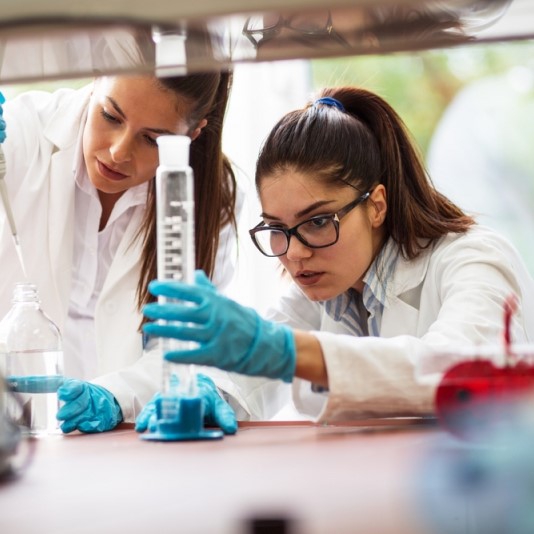The Notice of Special Interest (NOSI) titled Research Supplements to Promote Re-Entry, Reintegration into, and Retraining in Health-Related Research Careers (NOT-OD-23-170) announced three programs that enable administrative supplements to be given to existing NIH research grants and are intended to support full- or part-time research by researchers returning to the scientific workforce or those wishing to expand their skill sets. The supplements are designed to enhance existing research skills and knowledge to prepare them to apply for a fellowship (F), career development (K) award, research grant (R), or another type of independent research support.

The Reentry Supplements Program provides mentored research training opportunities for a minimum of one year to scientists who have had at least six months of interruption in their careers for family responsibilities or other qualifying circumstances so they can reenter active research careers. Most candidates for reentry supplements should have a doctorate or an equivalent degree; however, some awarding NIH Institutes, Centers, and Offices (ICOs) may allow predoctoral students, including those enrolled in dual-degree programs, to apply to the program.

The Reintegration Program addresses the critical need of scientists who have been adversely affected by unsafe or discriminatory environments resulting from unlawful harassment to rapidly transition into new research environments that are safe and supportive. Predoctoral and postdoctoral students are eligible to apply for reintegration supplements.

The Retraining/Retooling Program provides support and protected time for a mentored research experience that allows an early or mid-career candidate to obtain new skills and permits the candidate to move to a new research environment while augmenting the parent grant. The intent of the program is to facilitate interdisciplinary partnerships and cross-sector collaborations that enable the scholar to acquire specialized skills and novel perspectives that can help advance their careers.
HOW TO APPLY
Individuals whose research has been interrupted by family care responsibilities or affected by hostile work environments are encouraged to read the NOSI (NOT-OD-23-170) for important eligibility information (e.g., participating Institutes, Centers, and Offices (ICO), ICO contacts, eligibility, and qualifying circumstances) and apply. Visit the NIH Grants & Research webpage for links to ICO websites, points of contact, and email addresses.
SUCCESS RATE
The Reentry Supplements Program was the first funding opportunity established by ORWH in 1992, and since 2012, 24 ICOs have participated, with National Cancer Institute (NCI) and National Institute of General Medical Sciences (NIGMS) being the most active participants.
Most of the applicants and awardees have been women (80%). The overall success rate is 61%. The most cited reason for hiatus among applicants has been childrearing. There was a spike in applications after the start of the COVID-19 pandemic, followed by a dip that correlated with significantly increased caregiving responsibilities (child care and elderly care), decreased productivity, and greater attrition of many women scientists in academia. The disproportionate impact of the pandemic on women in biomedical careers and their need for the program are expected to continue for years to come.
SUPPLEMENT PROGRAM ELIGIBILITY
Reentry supplements candidates should have a doctoral degree, such as an M.D., D.D.S., Ph.D., O.D., D.V.M., or equivalent. For some NIH ICs, predoctoral students, including those enrolled in dual-degree programs (e.g., M.D.-Ph.D., D.D.S.-Ph.D., D.V.M.-Ph.D.) may also be eligible to apply. Please visit the NIH Grants & Research webpage for links to ICO websites, points of contact, and email addresses.
Reintegration supplements allow postdoctoral and predoctoral candidates to transition to a new safe and supportive research environment so they can complete their graduate degree or research training.
Retraining and Retooling supplements allow candidates with a minimum of two years of postdoctoral experience to apply.

